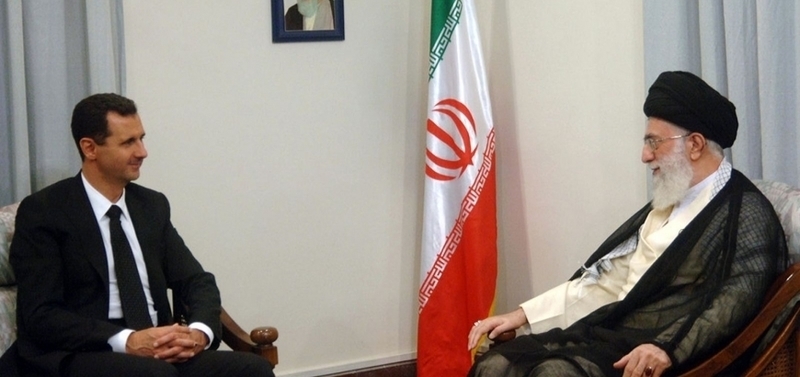Despite a significant decline in its control of Syrian territory following the advance of ISIS and opposition forces in the north and the south of the country, the Assad regime plans to launch a series of large-scale investment projects, including the construction of refineries and power stations, handing Iran the largest share of these contracts.
The importance of Iranian investment remains significant following geopolitical and demographic developments that indicate plans to divide Syria in light of the military advances on the ground, after the seizure of Palmyra and the cities of Aleppo, Deir-ez-Zor, Idleb and Jisr al-Shughour. Its significance is also highlighted by the regime’s apparent designs to retain control over Syria’s coastal regions, extending from the Turkish border to the Lebanese border, in addition to parts of the provinces of Aleppo, Hama, Homs and Damascus. The securing of these areas, where the regime retains 175,000 soldiers and pro-regime militias under its full command, appears to be a priority for Assad.
Though the regime is currently facing economic hardship, especially following its recent military defeats, the series of agreements recently signed with Iran will allow the flow of Iranian investments to finance several projects to ensure Assad’s survival. The investments are designed to expand the horizons of cooperation in a long-term strategic framework, as they include: oil and gas extraction, electricity (through the establishment of new power plants and electric conversion centers and networks) and the establishment of new medical facilities.
These contracts confirm Iranian economic assistance to the Assad regime was not isolated from its ambition to control the Syrian economy. These investments are linked to reports of Iranian investors purchasing real estate and hotels in Damascus and Alawite areas, in an attempt to exploit regime facilities to promote Iran's economic role and support its ownership of Syrian assets in exchange for credit (valued at over $10 billion USD since May 2013). On the other hand, Tehran aims to empower its ability to face any possibility of the regime's collapse by strengthening the position of the Alawite community, financially and economically, regardless of political change.
Several prominent economists have noted the regime deals with some Syrian cities and areas as if they were not part of Syria, indicating the regime's willingness to divide the country. The economist, Hassan Jamil, believes there are indications that Assad has given up more than 60 percent of Syria’s territory. Jamil claims that while the general budget for 2015 is 1.5 trillion SYP, opposition-held areas have not yet received any investments, projects or services, while state employees remain unpaid.
Translated and edited by The Syrian Observer


